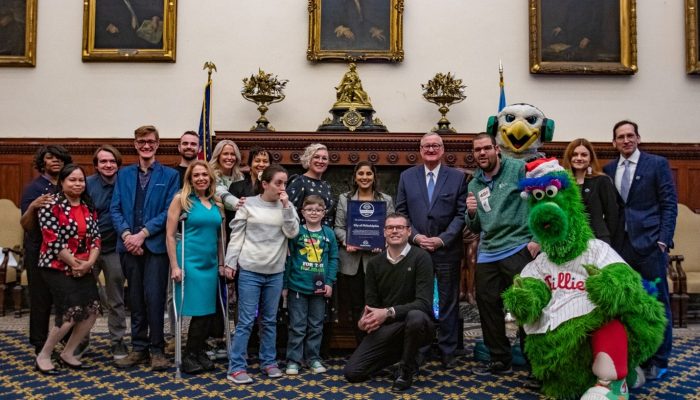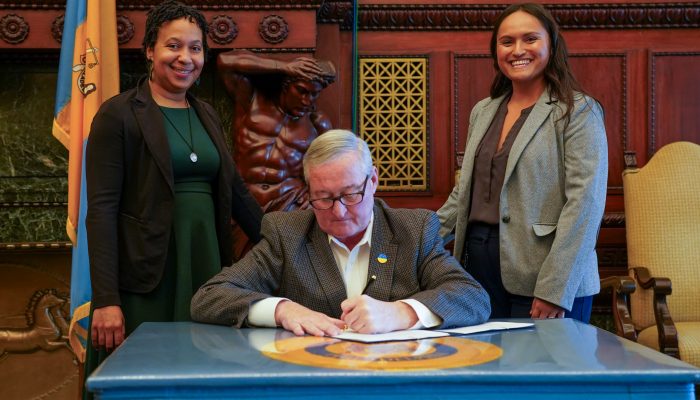Did you know that October 16 is International Pronouns Day? First celebrated in 2018, International Pronouns Day is an annual event that seeks to make sharing, respecting, and educating about personal pronouns commonplace.
In observance of the event, the City of Philadelphia and Office of LGBT Affairs have launched a campaign to begin including pronouns in City communications, including in the email signatures of City employees. Adding pronouns to your personal and professional email signatures is one simple step you can take to create a more inclusive environment for those you interact with.
Jane Smith
ABC Corporation
123 Market Street
215-123-4567
Pronouns: She/Her/Hers
To help guide the conversation around this topic in a respectful and educational way, the Office of LGBT Affairs also created a resource guide that can be used by any individual, group, or organization.
What is in the pronouns resource guide?
The resource guide includes definitions, background information, and other helpful details.
What is a pronoun?
Pronouns are the words used to refer to someone, often used in place of the person’s name. For example, you might say, “That is her desk.”
Why do pronouns matter?
You can’t always know what someone’s pronouns are by looking at them. Asking and correctly using someone’s pronouns is one of the most basic ways to show your respect for their gender identity. When someone is referred to with the wrong pronoun, it can make them feel disrespected, invalidated, dismissed, alienated, or dysphoric—often all of the above.
What are some examples of pronouns?
Pronouns can look like, but are not limited to:
-
- he/him/his (masculine pronouns)
- she/her/hers (feminine pronouns)
- they/them/theirs (neutral pronouns)
- ze/zir/zirs (neutral pronouns)
- ze/his/hirs (neutral pronouns)
Ask
Remember: you can’t always know someone’s pronouns by their appearance. You can respectfully ask, “Which pronouns do you use?”
Respect
It is important to use the correct pronouns when referring to someone because it honors their gender identity and is a sign of mutual respect.
Practice
If someone’s pronouns are unfamiliar to you, there are resources. The website practicewithpronouns.com can help you learn about using pronouns.
What if I make a mistake?
If you accidentally refer to someone with the wrong pronoun, simply apologize, correct yourself, and move on. For example, “The other day he—sorry, I mean she, told me she’s moving to Philly.”
Remember: never refer to a person as “it” or “he-she”. These are offensive slurs used against trans and gender non-conforming individuals.




